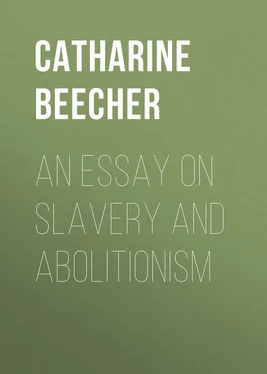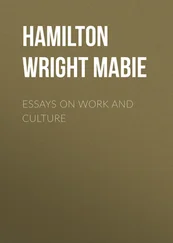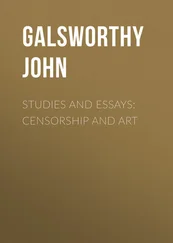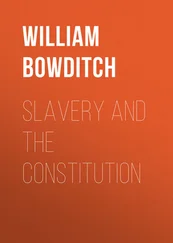Catharine Beecher - An Essay on Slavery and Abolitionism
Здесь есть возможность читать онлайн «Catharine Beecher - An Essay on Slavery and Abolitionism» — ознакомительный отрывок электронной книги совершенно бесплатно, а после прочтения отрывка купить полную версию. В некоторых случаях можно слушать аудио, скачать через торрент в формате fb2 и присутствует краткое содержание. Жанр: foreign_antique, foreign_prose, на английском языке. Описание произведения, (предисловие) а так же отзывы посетителей доступны на портале библиотеки ЛибКат.
- Название:An Essay on Slavery and Abolitionism
- Автор:
- Жанр:
- Год:неизвестен
- ISBN:нет данных
- Рейтинг книги:4 / 5. Голосов: 1
-
Избранное:Добавить в избранное
- Отзывы:
-
Ваша оценка:
- 80
- 1
- 2
- 3
- 4
- 5
An Essay on Slavery and Abolitionism: краткое содержание, описание и аннотация
Предлагаем к чтению аннотацию, описание, краткое содержание или предисловие (зависит от того, что написал сам автор книги «An Essay on Slavery and Abolitionism»). Если вы не нашли необходимую информацию о книге — напишите в комментариях, мы постараемся отыскать её.
An Essay on Slavery and Abolitionism — читать онлайн ознакомительный отрывок
Ниже представлен текст книги, разбитый по страницам. Система сохранения места последней прочитанной страницы, позволяет с удобством читать онлайн бесплатно книгу «An Essay on Slavery and Abolitionism», без необходимости каждый раз заново искать на чём Вы остановились. Поставьте закладку, и сможете в любой момент перейти на страницу, на которой закончили чтение.
Интервал:
Закладка:
Suppose another set of men, in this same community, become convinced that certain practices in trade and business in the rival city, are dishonest, and have an oppressive bearing on certain classes in that city, and are injurious to the interests of general commerce. Suppose also, that these are practices, which, by those who allow them, are considered as honourable and right. Those who are convinced of their immorality, wish to alter the opinions and the practices of the citizens of their rival city, and to do this, they commence the collection of facts, that exhibit the tendencies of these practices and the evils they have engendered. But instead of going among the community in which the evils exist, and endeavouring to convince and persuade them, they proceed to form voluntary associations among their neighbours at home, and spend their time, money and efforts to convince their fellow citizens that the inhabitants of their rival city are guilty of a great sin. They also publish papers and tracts and send out agents, not to the guilty city, but to all the neighbouring towns and villages, to convince them of the sins of the city in their vicinity. And they claim that they shall succeed in making that city break off its sins, by these measures, because other men succeeded in banishing intemperance by labouring among their own friends and fellow citizens. Is not this example exactly parallel with the exertions of the Abolitionists? Are not the northern and southern sections of our country distinct communities, with different feelings and interests? Are they not rival, and jealous in feeling? Have the northern States the power to rectify evils at the South, as they have to remove their own moral deformities; or have they any such power over the southern States as the British people had over their own trade and their dependent colonies in the West Indies? Have not Abolitionists been sending out papers, tracts, and agents to convince the people of the North of the sins of the South? Have they not refrained from going to the South with their facts, arguments, and appeals, because they feared personal evils to themselves? And do not Abolitionists found their hopes of success in their project, on the success which crowned the efforts of British philanthropists in the case of slavery, and on the success that has attended efforts to banish intemperance? And do not these two cases differ entirely from the Abolition movement in this main point, that one is an effort to convince men of their own sins, and the other is an effort to convince men of the sins of other persons ?
The second reason I would urge against joining the Abolition Society is, that its character and measures are not either peaceful or Christian in tendency, but they rather are those which tend to generate party spirit, denunciation, recrimination, and angry passions.
But before bringing evidence to sustain this position, I wish to make a distinction between the men who constitute an association, and the measures which are advocated and adopted.
I believe, that as a body, Abolitionists are men of pure morals, of great honesty of purpose, of real benevolence and piety, and of great activity in efforts to promote what they consider the best interests of their fellow men. I believe, that, in making efforts to abolish slavery, they have taken measures, which they supposed were best calculated to bring this evil to an end, with the greatest speed, and with the least danger and suffering to the South. I do not believe they ever designed to promote disunion, or insurrection, or to stir up strife, or that they suppose that their measures can be justly characterized by the peculiarities I have specified. I believe they have been urged forward by a strong feeling of patriotism, as well as of religious duty, and that they have made great sacrifices of feeling, character, time, and money to promote what they believed to be the cause of humanity and the service of God. I regard individuals among them, as having taken a bold and courageous stand, in maintaining the liberty of free discussion, the liberty of speech and of the press; though this however is somewhat abated by the needless provocations by which they caused those difficulties and hazards they so courageously sustained. In speaking thus of Abolitionists as a body, it is not assumed that there are not bad men found in this party as well as in every other; nor that among those who are good men, there are not those who may have allowed party spirit to take the place of Christian principle; men who have exhibited a mournful destitution of Christian charity; who have indulged in an overbearing, denouncing, and self-willed pertinacity as to measures. Yet with these reservations, I believe that the above is no more than a fair and just exhibition of that class of men who are embraced in the party of Abolitionists. And all this can be admitted, and yet the objection I am to urge against joining their ranks may stand in its full force.
To make the position clearer, an illustration may be allowed. Suppose a body of good men become convinced that the inspired direction, "them that sin, rebuke before all, that others may fear," imposes upon them the duty of openly rebuking every body whom they discover in the practice of any sin. Suppose these men are daily in the habit of going into the streets, and calling all by-standers around them, pointing out certain men, some as liars, some as dishonest, some as licentious, and then bringing proofs of their guilt and rebuking them before all; at the same time exhorting all around to point at them the finger of scorn.
They persevere in this course till the whole community is thrown into an uproar; and assaults, and even bloodshed ensue. They then call on all good citizens to protect their persons from abuse, and to maintain the liberty of speech and of free opinion.
Now the men may be as pure in morals, as conscientious and upright in intention, as any Abolitionist, and yet every one would say, that their measures were unwise and unchristian.
In like manner, although Abolitionists may be lauded for many virtues, still much evidence can be presented, that the character and measures of the Abolition Society are not either peaceful or christian in tendency, but that they are in their nature calculated to generate party spirit, denunciation, recrimination, and angry passions.
The first thing I would present to establish this, is the character of the leaders of this association. Every combined effort is necessarily directed by leaders; and the spirit of the leaders will inevitably be communicated to their coadjutors, and appear in the measures of the whole body.
In attempting to characterize these leaders, I would first present another leader of a similar enterprise, the beloved and venerated Wilberforce. It is thus that his prominent traits are delineated by an intimate friend.
"His extreme benevolence contributed largely to his success. I have heard him say, that it was one of his constant rules, and on the question of slavery especially, never to provoke an adversary – to allow him credit fully for sincerity and purity of motive – to abstain from all irritating expressions – to avoid even such political attacks as would indispose his opponents for his great cause. In fact, the benignity, the gentleness, the kind-heartedness of the man, disarmed the bitterest foes. Not only on this question did he restrain himself, but generally. Once he had been called during a whole debate 'the religious member,' in a kind of scorn. He remarked afterwards, that he was much inclined to have retorted, by calling his opponent the irreligious member, but that he refrained, as it would have been a returning of evil for evil. Next to his general consistency, and love of the Scriptures, the humility of his character always appeared remarkable. The modest, shrinking, simple Christian statesman and friend always appeared in him. And the nearer you approached him, the more his habit of mind obviously appeared to be modest and lowly. His charity in judging of others , is a farther trait of his Christian character. Of his benevolence I need not speak, but his kind construction of doubtful actions , his charitable language toward those with whom he most widely differed, his thorough forgetfulness of little affronts, were fruits of that general benevolence which continually appeared."
Читать дальшеИнтервал:
Закладка:
Похожие книги на «An Essay on Slavery and Abolitionism»
Представляем Вашему вниманию похожие книги на «An Essay on Slavery and Abolitionism» списком для выбора. Мы отобрали схожую по названию и смыслу литературу в надежде предоставить читателям больше вариантов отыскать новые, интересные, ещё непрочитанные произведения.
Обсуждение, отзывы о книге «An Essay on Slavery and Abolitionism» и просто собственные мнения читателей. Оставьте ваши комментарии, напишите, что Вы думаете о произведении, его смысле или главных героях. Укажите что конкретно понравилось, а что нет, и почему Вы так считаете.












